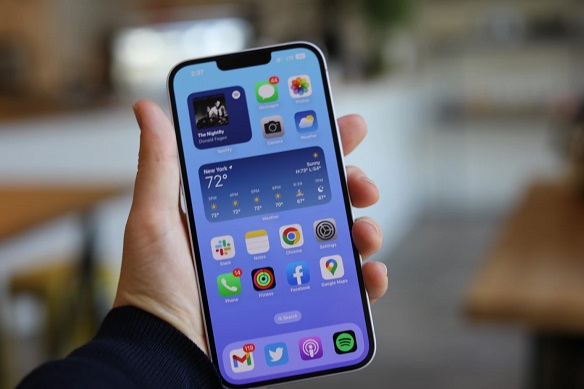
Apple on Monday released a new version of the iPhone and iPad’s operating systems to fix a vulnerability that hackers were exploiting in the wild, meaning they were taking advantage of it to hack Apple devices.
On the security update page, Apple wrote that it “is aware of a report that this issue may have been actively exploited.” This is the language Apple uses when someone alerts the company that they have observed hackers exploiting a bug against targets in the real world, as opposed to a vulnerability found by a researcher in a controlled environment, so to speak.
In this case, Apple credited an anonymous researcher for the discovery, and also thanked Citizen Lab “for their assistance.” Citizen Lab is a digital rights research group housed at the University of Toronto’s Munk School, known for exposing the abuse of government hacking tools such as those made by NSO Group.
Apple’s spokesperson Scott Radcliffe told TechCrunch that the company has nothing to add apart from what’s in the release notes. Bill Marczak, a senior researcher at Citizen Lab, said that he and his colleagues have no comments for now.
This latest bug was in WebKit, Apple’s browser engine that’s used in Safari, and a historically popular target for hackers, since it can open up access to the rest of the device’s data.
In 2021, Motherboard reported that in just the first four months of that year, Apple had patched seven bugs exploited in the wild, of which six were in WebKit, a number that experts considered high at the time.
Since then, things have improved. According to TechCrunch’s count of vulnerabilities, since January 2022, there have been nine bugs in iOS that “may have been actively exploited,” of which four in WebKit. The others were three in the kernel, the core component of the operating system; one in AppleAVD, the company’s audio and video decoding framework; and one in IOMobileFrameBuffer, a kernel extension.
As usual, the chances that an average iPhone user will be targeted with a zero-day like this one are slim, but you should still update your phone.
Google’s cell network provider Google Fi has confirmed a data breach, likely related to the recent security incident at T-Mobile, which allowed hackers to steal millions of customers’ information. In an email sent to customers on Monday, obtained by TechCrunch, Google said that the primary network provider for Google Fi recently informed the company that there had been suspicious […]
Welcome back to This Week in Apps, the weekly TechCrunch series that recaps the latest in mobile OS news, mobile applications and the overall app economy. The app economy in 2023 hit a few snags, as consumer spending last year dropped for the first time by 2% to $167 billion, according to data.ai’s “State of Mobile” report. However, […]
Okta has confirmed that it’s responding to another major security incident after a hacker accessed its source code following a breach of its GitHub repositories. The identity and authentication giant said in a statement on Wednesday that it was informed by GitHub about “suspicious access” to its code repositories earlier this month. Okta has since […]
Leave a Reply